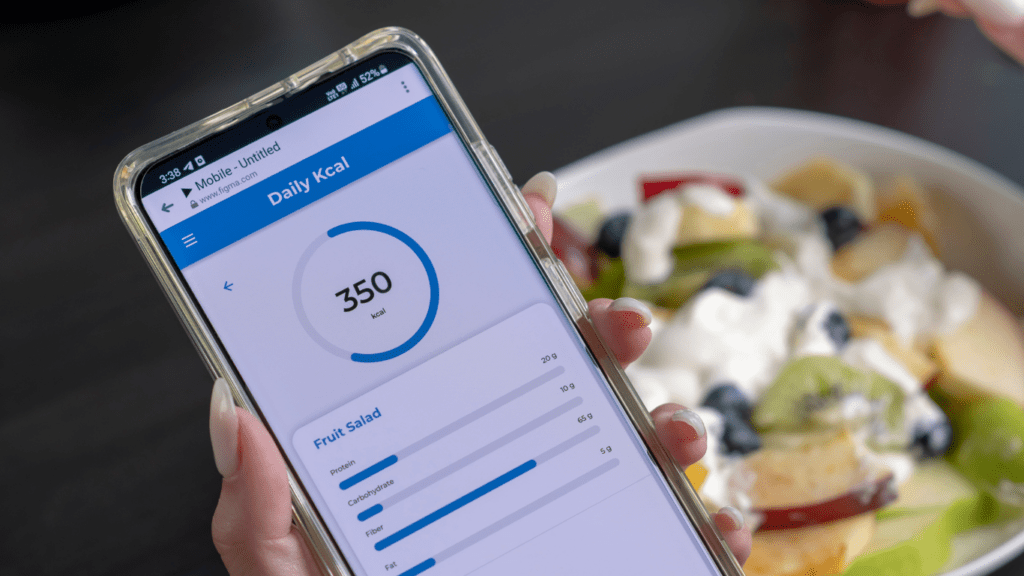Overview of Health and Fitness Apps
Benefits of Using Apps for Wellness
Health and fitness apps offer numerous advantages. They allow users to monitor progress comprehensively. Real-time data helps users adapt routines effectively.
Notifications and reminders keep users on track, while community features foster a sense of belonging and support.
Personalized plans cater specifically to individual needs, enhancing the likelihood of success.
Common Features of Top-Rated Apps
Top-rated health and fitness apps share several characteristics.
- Activity Tracking: Track daily movements, including steps, distance, and calories burned. For example, Fitbit and Google Fit excel in this area.
- Heart Rate Monitoring: Monitor heart rate continuously or during workouts. Apps like Apple Health and Samsung Health offer this feature.
- Nutrition Logging: Log daily food intake and assess nutritional value. MyFitnessPal and Lose It! include extensive food databases.
- Workout Plans: Provide various exercise routines tailored to different fitness levels. Examples include Peloton and Nike Training Club.
- Sleep Analysis: Track sleep patterns and quality. Sleep Cycle and Sleep Score specialize in sleep monitoring.
- Goal Setting: Set and manage fitness goals with progress tracking. Apps like Strava and Couch to 5K offer comprehensive goal-setting tools.
- Community Support: Engage with a community for motivation and support. Platforms like Fitbit and Strava emphasize social interaction.
Choosing the Right App for Your Needs
Considerations for Different Fitness Levels
Match the app to your fitness level for effective results.
Beginners should look for apps with guided tutorials, easy-to-follow workout routines, and basic meal plans.
- For example, apps like MyFitnessPal and 7 Minute Workout offer user-friendly interfaces ideal for those just starting.
- Intermediate users may need apps with varied workout plans, customizable schedules, and nutrition tracking.
- Nike Training Club and Fitbit serve this group well, offering diverse workouts and integrated meal planners.
- Advanced fitness enthusiasts could benefit from apps providing advanced metrics, performance analytics, and personalized coaching.
- Strava and JEFIT cater to high-intensity training and detailed performance tracking.
Privacy and Data Security Concerns
Prioritize data security to protect personal information.
Examine the app’s privacy policy to understand data handling practices. Fitness apps often collect sensitive data, including location, health metrics, and personal identifiers.
Ensure the app employs encryption to protect transmitted data and uses secure servers for storage.
For instance, Health (Apple) and Google Fit offer robust privacy settings and data encryption.
Look for apps that allow you to control sharing settings and delete data easily.
Choosing an app with a good reputation for data security, such as those compliant with GDPR or HIPAA, provides added peace of mind.
Reviews of Popular Health and Fitness Apps

Apps for General Fitness
General fitness apps offer comprehensive tracking and planning for various exercise routines.
MyFitnessPal stands out for its extensive food database and calorie tracking, making it ideal for beginners.
With over 11 million foods in its database, users can log meals effortlessly.
Nike Training Club offers guided workouts designed by professional trainers, benefiting intermediate users with diverse routines ranging from strength training to yoga.
Advanced users may find Fitbit highly effective, providing detailed metrics on heart rate, sleep quality, and daily activity.
Specialized Apps for Diet Tracking
Diet tracking apps help users monitor their nutritional intake. Lose It! streamlines meal logging by allowing barcode scanning and offering personalized weight loss plans.
Users can set goals and track macronutrients with ease. Cronometer provides detailed nutrient breakdowns, beneficial for those needing precision in their dietary habits.
It supports tracking of vitamins, minerals, and amino acids, perfect for anyone aiming for comprehensive nutrition tracking.
MyNetDiary excels in user-friendliness, focusing on simplicity and accuracy, ideal for users wanting straightforward calorie counting and nutrition advice.
Apps Focused on Mental Health
Mental health apps offer tools for stress management and emotional well-being. Headspace provides guided meditation sessions suitable for beginners and experienced meditators.
Its structured courses cover topics like stress relief, sleep improvement, and mindfulness.
Calm offers a variety of meditation practices, sleep stories, and breathing exercises, beneficial for users needing relaxation techniques.
Moodpath assists users in identifying mental health patterns by providing regular mood assessments and offering insights to discuss with healthcare professionals.
Trends and Future Developments in Health Apps
Integration with Wearable Technology
Health apps increasingly integrate with wearable technology.
Devices like:
- Apple Watch
- Fitbit
- Garmin
not only track activity but also sync with apps, offering real-time data.
This integration enhances user experience by providing continuous monitoring of vitals such as heart rate, sleep patterns, and stress levels.
Wearables collect a wealth of data, and health apps use this information to personalize recommendations.
For instance, Strava users benefit from insights into performance metrics, while Fitbit delivers comprehensive sleep reports.
Incorporating wearables with health apps adds accuracy and depth to tracking fitness journeys.
Predictions for Future App Innovations
Future health app innovations focus on AI-driven personalization and advanced analytics.
AI algorithms personalize workout plans and dietary suggestions by analyzing user data more accurately.
Apps will offer more detailed insights into what certain metrics mean for individual health.
Developers anticipate advancements in interoperability between health apps and medical records.
Apps like MyChart already allow some integration with electronic health records (EHRs). Broader adoption could enable users to share fitness progress with healthcare providers seamlessly.
Mental health apps are likely to integrate with biofeedback from wearables, providing real-time stress management tools.
AI-driven reminders and tips for mindfulness and relaxation might be tailored to users’ physiological states.
Enhanced sensors in wearables could detect subtle changes in mood, prompting proactive mental health interventions.
Overall, the evolution of health apps will leverage technology to provide more personalized, accurate, and actionable health insights, driving users towards their wellness goals more effectively.
